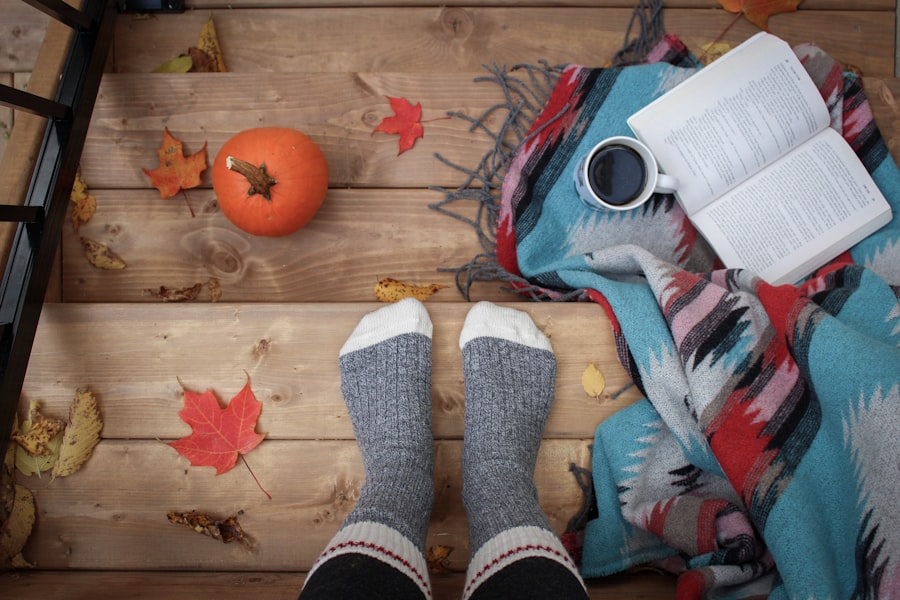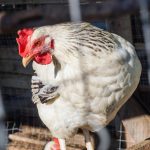Chickens require specific care during winter to maintain their health and well-being. As temperatures decrease, it is essential to provide proper shelter, adequate bedding, and consistent access to unfrozen water. A balanced diet is crucial for maintaining their health in colder conditions.
Protection against predators and pests, which may become more active in winter, is also necessary. Regular monitoring for signs of illness is important, as chickens are susceptible to cold-related health issues such as frostbite and hypothermia. Proper winter care ensures that chickens remain healthy and productive throughout the colder months.
By addressing these specific needs, chicken owners can help their flocks thrive despite challenging weather conditions.
Table of Contents
Key Takeaways
- Chickens need a warm and dry shelter in winter to protect them from cold temperatures and drafts
- Proper bedding such as straw or wood shavings helps insulate the coop and keep chickens comfortable
- Fresh water is essential for chickens in winter, so it’s important to regularly check and refill their water supply
- A balanced diet of grains, greens, and protein helps chickens maintain their health and energy in winter
- Securing the coop and using predator-proof fencing can help protect chickens from predators and pests
- Regularly monitor chickens for signs of illness such as lethargy, decreased appetite, or unusual behavior
- Providing opportunities for exercise and enrichment, such as perches and toys, can help keep chickens active and mentally stimulated
Providing proper shelter and bedding
Insulating the Coop
A well-insulated coop with good ventilation is crucial for protecting chickens from the cold while preventing moisture buildup, which can lead to respiratory issues. The coop should be free from drafts but still allow for proper airflow to prevent the buildup of ammonia from droppings.
Bedding and Comfort
Additionally, providing ample bedding such as straw or wood shavings will help insulate the coop and provide a comfortable surface for the chickens to rest on. It’s important to regularly clean and replace bedding to maintain a dry and sanitary environment for the chickens.
Outdoor Space and Exercise
In addition to a well-insulated coop, providing a secure outdoor run or enclosure will give the chickens the opportunity to get fresh air and exercise while still being protected from the elements. This outdoor space should be covered to protect the chickens from snow and rain while still allowing them access to natural light. By providing proper shelter and bedding, you can ensure that your chickens stay warm, dry, and comfortable throughout the winter months.
Ensuring access to fresh water

Access to fresh water is crucial for chickens year-round, but it becomes even more challenging during the winter months when temperatures drop below freezing. Chickens require a constant supply of clean water for drinking, digestion, and regulating their body temperature. To prevent water from freezing, consider using heated waterers or placing a small heater or heated base in the water container to keep it from freezing.
It’s important to regularly check the water supply throughout the day to ensure that it hasn’t frozen over. In addition to preventing freezing, it’s essential to protect the water source from contamination by keeping it in a clean and secure location. This will help prevent the spread of diseases and ensure that the chickens have access to clean water at all times.
By ensuring access to fresh water, you can help your chickens stay hydrated and healthy throughout the winter season.
Feeding a balanced diet
Feeding a balanced diet is essential for keeping chickens healthy and productive during the winter months. As temperatures drop, chickens require more energy to stay warm, so it’s important to provide them with a diet that is high in protein and fat. Consider supplementing their diet with grains such as corn, oats, or barley, as well as high-protein treats like mealworms or black soldier fly larvae.
Additionally, providing access to fresh greens such as kale, spinach, or cabbage will give them essential vitamins and nutrients. It’s also important to ensure that the chickens have access to grit, which helps them digest their food properly, especially if they are consuming more grains during the winter months. Additionally, providing a calcium supplement such as crushed oyster shells will help maintain their egg production during the winter months.
By feeding a balanced diet, you can help your chickens stay healthy and maintain their energy levels throughout the winter season.
Protecting against predators and pests
Protecting chickens against predators and pests is crucial year-round but becomes even more important during the winter months when food sources may be scarce for wild animals. Ensure that your coop and outdoor run are secure with sturdy fencing and locks to prevent predators such as raccoons, foxes, or birds of prey from gaining access to your chickens. Additionally, regularly inspect the coop for any signs of damage or entry points that could allow pests such as rodents or insects to enter.
Consider using predator deterrents such as motion-activated lights or sound devices to scare off potential threats. It’s also important to keep the area around the coop clean and free from debris that could attract pests. By protecting against predators and pests, you can help ensure the safety and well-being of your chickens throughout the winter season.
Monitoring for signs of illness

Respiratory Issues in Winter
During the winter months, chickens may be more susceptible to respiratory issues due to poor ventilation or damp bedding in the coop. Keep an eye out for symptoms such as coughing, sneezing, wheezing, or nasal discharge, which could indicate a respiratory infection.
Monitoring Behavior and Appearance
Additionally, monitor their overall behavior and appearance for signs of illness such as lethargy, decreased appetite, or abnormal droppings. Regularly inspect their feet for signs of frostbite or bumblefoot, which can occur in cold and damp conditions.
Isolation and Treatment
If you notice any signs of illness or injury, isolate the affected chicken immediately and consult with a veterinarian for proper diagnosis and treatment.
Keeping Your Flock Healthy
By monitoring for signs of illness, you can help keep your flock healthy and thriving throughout the winter season.
Providing enrichment and exercise opportunities
Providing enrichment and exercise opportunities is important for keeping chickens mentally stimulated and physically active during the winter months when they may spend more time indoors due to inclement weather. Consider providing them with hanging treats or puzzle feeders to encourage natural foraging behaviors and keep them entertained. Additionally, providing perches or platforms in the coop will give them opportunities to roost and exercise their muscles.
If weather permits, allow your chickens supervised access to an outdoor run or enclosed area where they can scratch in the dirt, dust bathe, or explore their surroundings. This will help prevent boredom and reduce stress while promoting their overall well-being. By providing enrichment and exercise opportunities, you can help keep your chickens happy and healthy throughout the winter season.
In conclusion, understanding and addressing the specific needs of chickens during the winter months is essential for ensuring their health and well-being. By providing proper shelter and bedding, ensuring access to fresh water, feeding a balanced diet, protecting against predators and pests, monitoring for signs of illness, and providing enrichment and exercise opportunities, you can help your chickens thrive throughout the winter season. With proper care and attention, your chickens can stay healthy, happy, and productive even in the coldest months of the year.
If you’re looking for more tips on keeping your chickens healthy in winter, you might want to check out this article on the importance of the floor of the chicken coop here. It provides valuable information on how to maintain a clean and comfortable environment for your chickens during the colder months.
FAQs
What are some common health issues for chickens in winter?
During winter, chickens are susceptible to respiratory infections, frostbite, and decreased egg production due to the cold temperatures and lack of sunlight.
How can I keep my chickens warm in winter?
To keep chickens warm in winter, provide a well-insulated coop with proper ventilation, use heat lamps or heated waterers, and provide extra bedding for insulation.
What should I feed my chickens in winter to keep them healthy?
In winter, chickens require a higher calorie intake to maintain body temperature, so provide them with a balanced diet of layer feed, scratch grains, and additional protein sources such as mealworms or black oil sunflower seeds.
How can I prevent frostbite in my chickens?
To prevent frostbite, make sure the coop is well-insulated and free from drafts, provide roosts with wide flat surfaces for chickens to sit on, and apply petroleum jelly to their combs and wattles to protect them from the cold.
How can I ensure my chickens get enough sunlight in winter?
To ensure chickens get enough sunlight in winter, provide artificial lighting in the coop for at least 14 hours a day to stimulate egg production and prevent vitamin D deficiency.
Meet Walter, the feathered-friend fanatic of Florida! Nestled in the sunshine state, Walter struts through life with his feathered companions, clucking his way to happiness. With a coop that’s fancier than a five-star hotel, he’s the Don Juan of the chicken world. When he’s not teaching his hens to do the cha-cha, you’ll find him in a heated debate with his prized rooster, Sir Clucks-a-Lot. Walter’s poultry passion is no yolk; he’s the sunny-side-up guy you never knew you needed in your flock of friends!







